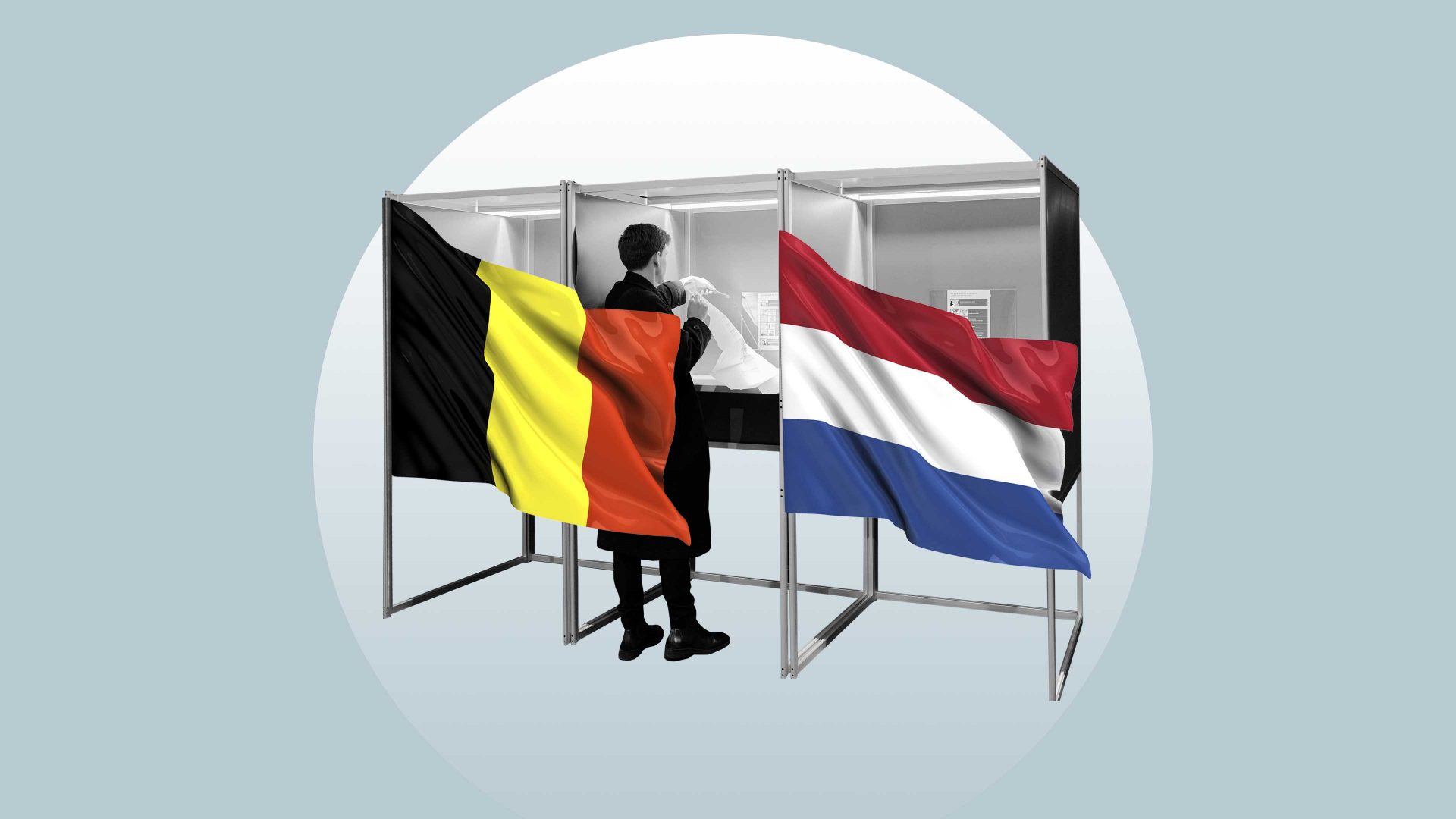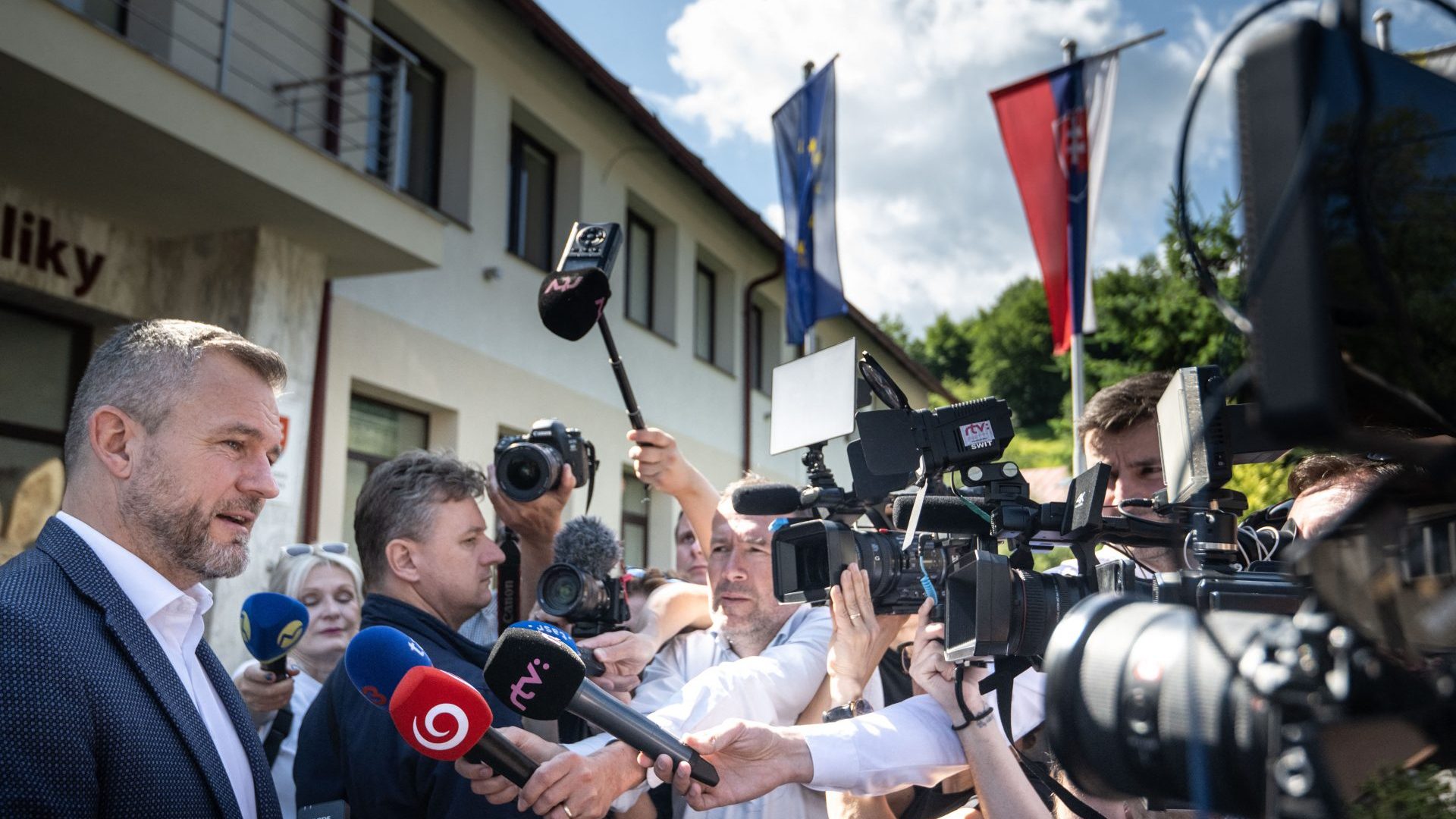Do countries actually need governments? The Netherlands is still waiting for one after holding elections in November last year. Belgium has its own history of record-breaking periods of coalition negotiations, and the country is in another one after general elections on June 9 that took place alongside the European parliament vote. Neither country seems to fare much worse for not having anybody at the helm to take tough decisions.
While voters in both countries had their say, the Belgian polls were the more significant as they covered the federal and regional parliaments. In the Netherlands, the most the European elections could do was slow the momentum of the far-right PVV, led by Geert Wilders. In this, the Green-Left Labour alliance succeeded. It lost one seat but nevertheless came out on top – Wilders gained six.
In the Netherlands last year, the PVV, with its anti-immigrant, anti-Islam platform, staged a shock victory. That led to expectations that in the Dutch-speaking, Flemish part of Belgium, the nationalist far-right Vlaams Belang party would do likewise.
That didn’t happen in the end – at least not quite. The party came very close to dethroning the also pretty right wing nationalist N-VA, but unexpectedly fell just short. What had changed in the days before voting, after months of Vlaams Belang being well ahead? The only significant development was the N-VA finally, just weeks before the elections, distancing itself very clearly from its far-right rivals. N-VA stated it would not enter any agreement with Vlaams Belang.
Compare this with the Netherlands where the collective centre-right has for years been kowtowing to Wilders’s agenda. Liberals and Christian Democrats even governed with his support from 2010-12. The PVV and its brand of polarising politics became normalised and inspired other, ever more off-kilter right wing imitators. In the end, Wilders became the respectable one.
Belgians, smug about having kept their far-right agitators at bay, should not celebrate yet. Bart De Wever and the N-VA are about as far to the right as you can go without stumbling into extremist la-la-land. And his idea of a confederate Belgium, as opposed to Vlaams Belang’s call for Flemish independence, might now gain more traction.
De Wever sees himself as a candidate for Belgian prime minister. The N-VA, the largest faction in the federal parliament, wants to form a government in order to tackle the budget and decide on constitutional reform. That means ceding more powers and resources to the regional Flemish and Walloon governments.
This is not new, but the party might fancy its chances this time around because it succeeded in heading off Vlaams Belang. It can point at the strong nationalist currents in the Flemish region and tell the other parties that only its plan will stop the far right. It could be helped on the budgetary side by the socialist PS losing ground in the Walloon region and being less able to resist the cuts being pushed by De Wever.
He wants to set up a quick, mini-cabinet to resolve some of the main issues Belgium is facing, but he won’t be able to short-circuit the long, drawn-out period of negotiations that is still in the offing. The power balance in the federal parliament has not changed dramatically and the other parties are unlikely to let themselves be browbeaten by De Wever. Belgian political analysts scoff at his “untried” ideas and believe that, in the end, not much will change.
In that sense, the Dutch are much more experimental, apart from their openness to the far right. They’re trying out a formula with an outside prime minister and a former spy chief called in to lead the cabinet because nobody wants Wilders to be the face of the Netherlands. This shows that the PVV’s right wing coalition partners are aware of the iniquity they’re inflicting on the country.
The Dutch are still trying to figure out the new, most right wing cabinet ever assembled, while in Belgium the process is just starting. Let’s just see this as a period of grace, and brace for what’s to come.
Ferry Biedermann is a journalist based in Amsterdam



